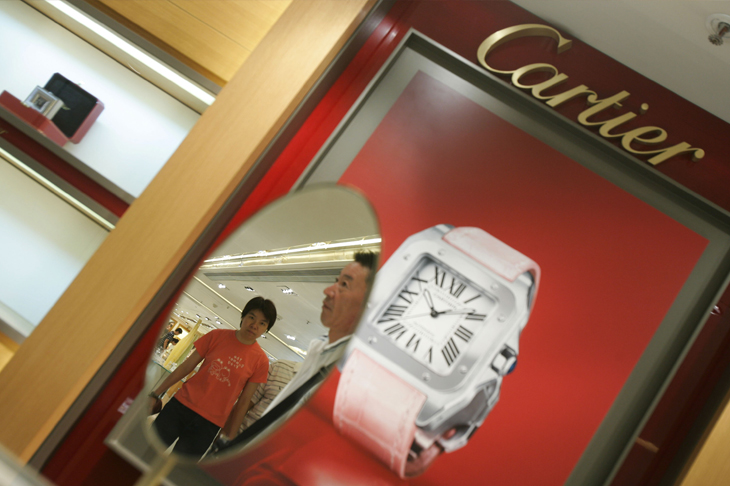Damaging unintended consequences of Hol-gate
Act in haste; repent at leisure. It was only an hour or so after last week’s Senate Estimates heard of Australia Post’s Cartier watches rewards to four executives for pulling-off a $66-million revenue-boosting deal. Communications Minister Paul Fletcher then precipitously and unwisely encouraged Prime Minister Morrison’s unprecedented political intervention in the internal operations of a multi-million-dollar dividend-paying (not taxpayer-funded) government-owned business enterprise. Forcing the highly-regarded CEO of Australia Post, Christine Holgate, to stand down (‘and if she doesn’t wish to do that she can go’) and subjecting ‘the conduct of (independent) board members and their governance as well as the actions of management and the executive’, is not only an ill-considered questioning of their integrity, but also a deadly warning to any other private sector executives of the political perils of getting involved with governmental commercial enterprises.
The Morrison response was crude political grandstanding without recognising the ‘unintended consequences’ of potential damage to the willingness of much-needed commercial talent to put up with opportunistic political bastardry. The perceived political necessity, in view of the inevitable Labor attack, to distance the government from the actions of a board now entirely made up of its own appointees (including four of its former political apparatchiks) was heightened by the unpopularity of an Australia Post that has inconvenienced the public by reducing the frequency and reliability of its postal service with the excuse that Covid-19 worsened the already huge losses on letter-delivery. And then, having cried poor, it went on to report record revenues of $7.5 billion due to parcels and paid a $21 million dividend to the government – an ‘extraordinary performance’ by Ms Holgate, according to John Durie, one of a long list of her financial media defenders.
But Australia Post’s remarkable success in offsetting the huge losses on letters by diversifying into parcels (and beating the international-owned market leaders at their own game) as well as expanding the role of post offices into banking services, indicates an entrepreneurial energy that is threatened by the dead hand of political intervention. When the PM was ‘appalled; it’s disgraceful and it’s not on’ and Minister Fletcher was ‘shocked and concerned’ they resorted to the old saw that they were protecting taxpayers’ money; that we ‘expect the board and management of government business enterprises to deal with taxpayers’ money with scrupulous care’. But they deviously ignored Holgate’s response to Senate Estimates that ‘We have not used taxpayers’ money; we do not receive government funding’. To pretend that $20,000 of Australia Post’s $7 billion commercial operating costs in the pursuit of profit (including rewarding employees) can be separated out as involving ‘the use of taxpayers’ money’ is farcical. But remuneration issues certainly are a matter that the owner, the government on behalf of the Australian people, has a right to know about – and even to express its views to the board, as shareholders do at AGMs – with the proviso that commercial rather than political criteria be uppermost.
However, Morrison’s political fears arising from Hol-Gate were confirmed when Labor’s communications spokeswoman, Michelle Rowland said ‘the Australia Post board is [a] dysfunctional swamp of former Liberal politicians, party hacks and mates of Scott Morrison. This board is incapable of executive oversight and must be cleaned up’. Former Queensland Liberal National party president Bruce McIver became a director in December 2015 and former Liberal senator Michael Ronaldson the following May. In 2017, Deidre Willmott, a former chief of staff to two Western Australian Liberal leaders and ‘spinner’ for mining magnate Andrew ‘Twiggy’ Forrest also became a director with the 50 per cent ‘political’ representation being rounded out by Tony Nutt in 2018, the year after he resigned as federal director of the Liberal party.
Naturally, Rowland ignored Ms Holgate’s evidence that the watches gift was a recommendation from then chairman John Stanhope, an appointee of the Gillard Labor government, who signed the cards accompanying the gifts. Nevertheless, with half the current board being so closely tied to the government, defending the integrity of the board and its CEO may have been too heavy a task and too great a distraction for a government focussed on dealing with the Covid-19 crisis.
Minister Fletcher’s hasty repudiation of Holgate may have been influenced by claims that well before the fateful Senate Estimates hearing last week, ‘her reign in the top job was already under serious pressure’. According to a lengthy article in the Saturday Paper, ‘Holgate’s tenure had been the subject of accusations by political opponents of poor judgement and profligate spending within the publicly owned utility’. Crucially, there was also a Senate committee threat to undo Fletcher’s unilateral April decision to relax Australia Post’s delivery standards because of the Covid-19 crisis, without which the 2019-20 modest pre-tax profit of $53.6 million on revenue of $7.5 billion, would have been a loss. In Senate Estimates Australia Post revealed there were about 4.6 million parcels that it ‘could not otherwise have delivered’ without the temporary relaxation of service standards, which do not expire until June 30 next year. In expressing her pleasure in avoiding a loss, Holgate said the temporary regulatory relief ‘has been critical in helping us deliver these parcels that now represent 61 per cent of group revenues.’
The Australia Post fiasco is just the latest consequence of governments trying to run competitive business enterprises. Australia Post is no longer simply a monopoly agency providing a public (loss-making) service by delivering letters; with emails killing letters, its main source of revenue now comes from competing with commercial rivals in parcel delivery. Unlike normal shareholder owners, the government imposes a political dimension on its business enterprises that inevitably damages their effectiveness. And the hypocrisy of the attack on rewards for outstanding performance is demonstrated by their existence within the government’s bureaucracy – and that really is taxpayers’ money. Christine Holgate’s future should be determined on corporate criteria, not political expediency. If she goes, it will be a killer blow to entrepreneurial spirit within government business enterprises. Privatise or perish.
Got something to add? Join the discussion and comment below.
Get 10 issues for just $10
Subscribe to The Spectator Australia today for the next 10 magazine issues, plus full online access, for just $10.
You might disagree with half of it, but you’ll enjoy reading all of it. Try your first month for free, then just $2 a week for the remainder of your first year.














Comments
Don't miss out
Join the conversation with other Spectator Australia readers. Subscribe to leave a comment.
SUBSCRIBEAlready a subscriber? Log in